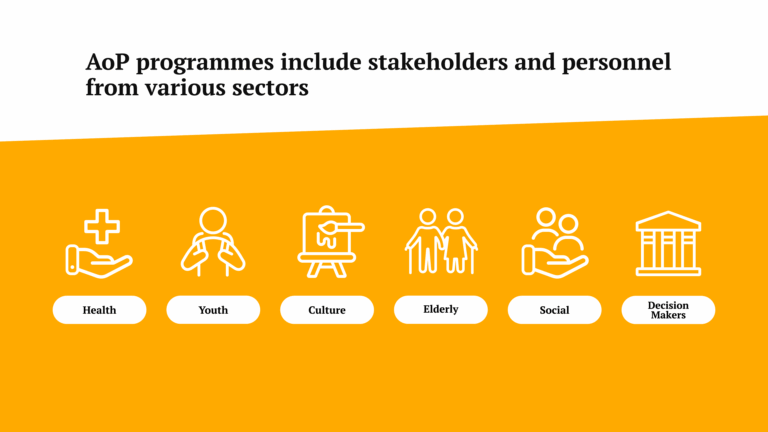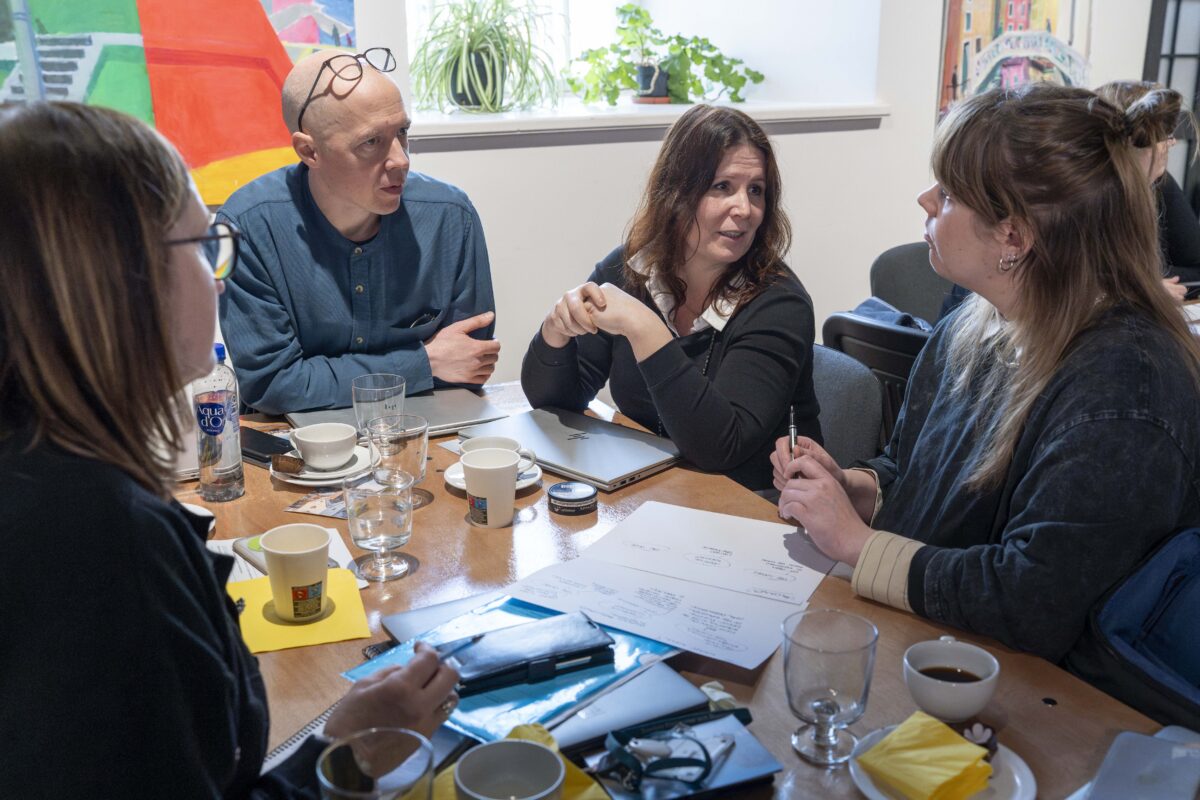Each lead organisation, e.g., a local municipality or region, should establish a cross-sectoral steering group. Your organisation may have an established cross-sectoral steering committee or cross-sectorial steering group, which can take on the task of also planning and implementing an AoP programme.
In setting up a new cross-sectoral steering group, it will be necessary to identify appropriate stakeholders from relevant administrations and departments within your municipality or region. The steering group should have a strategic role and should consist of decision makers or personnel with strategic authority to allocate the necessary financial, personal, and technical resources to pilot and establish the programme. Read more about the roles and responsibilities of the steering group here.
It is strongly recommended to establish an interdisciplinary cross-sectoral working group for the day-to-day implementation of the AoP programme. The working group should include key employees from relevant departments from the referral channels, culture, and arts institutions as well as the link worker. The working group should consist of persons with previous experience, expertise, and skills in the practical development and implementing of similar programmes and should have the ability to make day to day decisions in running the AoP programme Read more about the roles and responsibilities of the working group here.
Coordinating and implementing AoP programmes requires employees with strategic and practical coordination skills. These skills can be fulfilled by one or more people, for instance a project manager and a link worker. Strategic coordination requires setting up the organisational framework and planning and facilitating steering group meetings to determine the goals and objectives of the AoP programme, and resources required to implement the programme.
Practical coordination requires the day-to-day tasks of managing the AoP programme such as planning and evaluating the programme’s structure together with those involved in the programme. Also, to have day-to-day contact with the referral channels to make sure the recruitment process runs smoothly and the day-to day contact with the participants throughout the AoP programme, which requires empathic and motivational skills. Evaluation skills are also necessary to evaluate the programmes outcomes. Read more about the roles and responsibilities of the project manager and link worker here.
Referral channels are responsible for referring participants to the AoP programmes and can include both medical and non-medical professionals. The referral channels are in contact with the AoP programmes target audience and often identify potential participants that could benefit from the programmes. Effective collaboration between the referral channels and the link worker provides a good foundation in recruiting relevant participants to the AoP programmes. They are in close contact with the link worker regarding potential participants. Read more about the roles and responsibilities of the referral channels here.
Culture and arts facilitators are cultural professionals who are heavily involved in the implementation of the AoP programmes, as they are responsible for facilitating the programmes activities for the participants. Effective coordination between the culture and arts facilitators and the link worker is key to successfully implementing the AoP programme and to promote mental health and wellbeing. Read more about the roles and responsibilities of the culture and arts facilitators here.
Who is responsible for establishing the organisational framework? It can be a leading authority (e.g. leader from health/culture administration or politician) and project manager who is interested in setting up/testing an AoP programme. The leading authority may ask a project manager to suggest potential candidates for the organisational framework such as steering group members from relevant departments and organisations.
It could also be a local project manager or a cultural facilitator who would take the initiative to create an AoP programme and thereby establish a cross-sectoral organisational framework.
The organisational framework will very much depend on your local context, it may be possible to combine strategic stewardship, and the skills required to plan and implement your AoP programme in a cross-sectoral and interdisciplinary AoP committee. See below a specific adaptation to the organisational framework. For a full description of all pilot programmes organisational frameworks click here
Advisory board – “The idea and aim of the advisory board was to involve all relevant local stakeholders from the cultural and health sector in Bremen at an early stage in order to promote the AoP-concept, receive feedback and thus increase the local support and chances of long-term implementation. The advisory board representatives (medical & psychotherapists, general practitioners association and statutory health insurance funds as well as culture and arts institutions) met every 6 months, to discuss the programmes, status, provide feedback and the potential for long-term implementation of the programme. The advisory board assisted in gaining high-ranking support for AoP”. Bremen Pilot programme.



